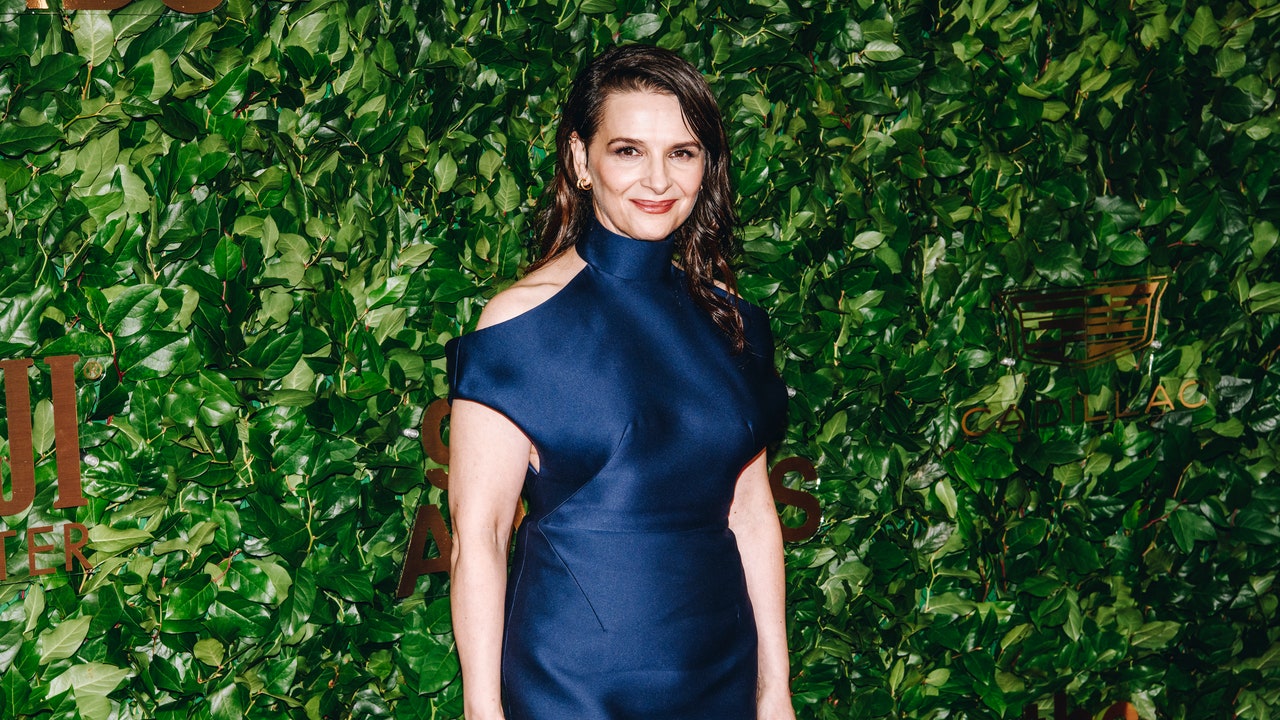Movie after movie, Juliette Binoche embodies the qualities of a restless, fearless actor. She works a ton, typically taking on several psychologically intense and emotionally draining roles a year. She collaborates regularly with exacting global auteurs like Claire Denis and Hirokazu Kore-eda and Olivier Assayas. She digs deep into her characters and is unafraid of strongly advocating for them. (She told me last year of one conversation with her showrunners on the Max series The Staircase, “I actually asked them to rewrite the scene.”) All of which makes the Oscar winner’s entrance in The Taste of Things, France’s official submission for the international-film Oscar, that much more surprising. Director Trần Anh Hùng films his star, transported to the French countryside circa 1885, with a loving ease, following her in one long, sumptuous take as she prepares an elaborate meal. Binoche appears effervescent, warm, unhurried; the scene’s poetry rests in her projection of calm.
This, it turns out, was as eye-opening for Binoche as a student of her recent work might expect. She portrays a talented chef named Eugénie, whose profound love for her employer, the noted restauranter Dodin Bouffant (Benoît Magimel), reaches turning points both romantic and tragic over the course of the film. In that story, Binoche was given a rigorous cinematic lesson in slowing down. Out of her rich collaboration with Hùng, a Vietnamese-born filmmaker who grew up in France, she reflected on her life and career; in filming a grand love story with Magimel, her former partner—and the father of her daughter—she found a way to say what’d long been unsaid between them. This impact on Binoche shows in her luminous performance—and as she says on this week’s Little Gold Men (read or listen below), it’s one she plans on carrying forward.
Vanity Fair: As you got to learning about your role in this film and the relationship at the story’s center, what appealed to you and what were you most excited to play within that?
Juliette Binoche: The relationship to food, of course, it reminds you of the relationship with your mother. The first breastfeeding moment, and the need of being fed stays forever. You never get rid of it. Also, the need of love and the need of being taken care of. Then there’s a moment when it reverses, because when you have kids, you have to take care of them, you have to cook. There’s something essential about this film in a way because it’s about preparing for others. I like the analogy between the relationship between Dodin, who’s being played by Benoît Magimel, and myself, because it reminds me of the relationship between a director and an actor. The guy is the conceptor, he has the idea of the recipe, and my character is a cook who’s going to make it real, who’s going to incarnate this idea. And it’s very much what actors do. We read lines on the paper, and then we have to make them real and alive and truthful and vibrant.
The film begins on this really stunning, single-take sequence of you cooking an elaborate meal. Let’s take that as an example of the practical nature of the project. How did you prepare for and navigate that scene?
Hùng, the director, was always asking me to keep smiling, stay happy. Knowing that I had to play this character, I knew it was a little more complex than that, because she’s hiding a lot of things. We had to make sure that, in the pace of it, we would respect everybody’s pace. There’s a sort of a ballet thing that you have to do in sequences….That’s why we rehearsed quite a lot. We had a day of rehearsals before we did that shot.
Given the gastronomic specificity of the film, did you have a level of confidence in being able to act out making some of these dishes? What’s your level of cooking versus what the film required?
I don’t think I had any difficulty in learning the recipes, but there are some gestures—the cooking gestures you do in cutting or doing the sabayon special sauce, you have to move a certain way, but very, very quickly. It is like playing music, really. That I couldn’t do very well. It would’ve meant being an apprentice for about three years, which I didn’t have the time to do. [Laughs] And anyway, Hung was not interested in seeing that, the obvious gesture of the active cutting very fast, like people do in kitchens. It wasn’t the purpose.
I’m curious how you found the perspective of the film. I spoke with your director, Hùng, a little bit about it, and he described it as his kind of love letter to France. He’s somebody who came to France at a young age and who has a real affection for it culturally. There is a kind of dreamy aspect to the film in that regard.




